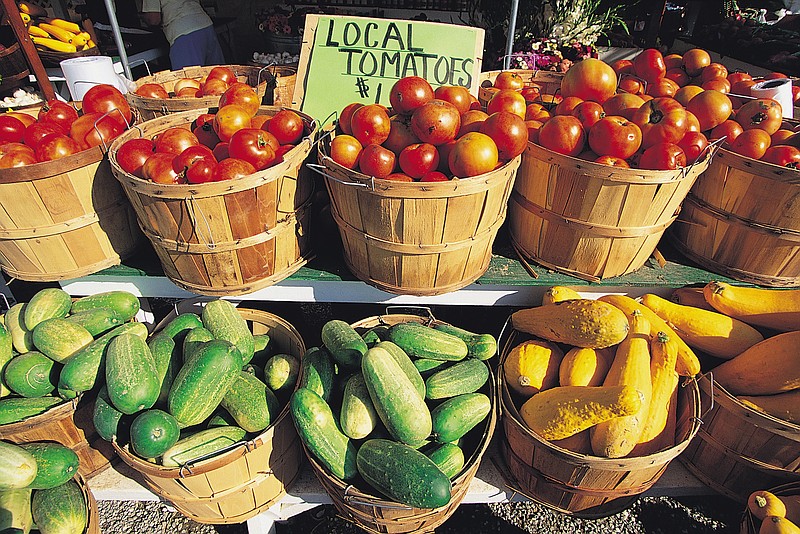March is National Nutrition Month, and with only a few days left in the month, try to make the most of it by "Eating Right on a Budget."
"Easier said than done with the cost of groceries these days" is what most of us would say. However, getting the most for your money starts with just a little planning ahead. Here are a few budget-friendly tips for eating right when money is tight.
Cook more, eat out less -- eating out can add up fast and be very expensive. Preparing food at home can cost less and is healthier. Prepackaged foods, like frozen dinners and boxed meals add up when you calculate the cost per serving. Making your own meals with a little preparation ahead of time can cut your food budget tremendously. Find a few simple recipes that you know your family enjoys, and save eating out for special occasions.
Plan what you are going to eat by deciding on meals and snacks before you shop. This will save you time and money. Make a list, either on your phone or with pen and paper. Review your recipes, check your pantry and refrigerator for what you have on hand, then write down the ingredients that you need to buy. Shopping without a list can cause impulse buys that will cost you more.
Decide how much you plan to make or buy for your trip to the store. Doubling a recipe will save time in the kitchen. Extra portions can be used for lunches or for other meals during the week, by freezing leftovers in individual containers. Purchasing in bulk is often cheaper, as well.
Determine where to shop by checking local newspaper/online ads for sales and coupons, especially when it comes to more expensive ingredients such as meat and seafood. While shopping, compare prices of different brands, sizes, and unit prices (unit price is usually located on the shelf directly below the product).
Shop for foods that are in season, such as fresh fruits and vegetables, which are usually less expensive. Frozen and canned products are good options, as well as more affordable at certain times of the year. Look for fruits that are canned in 100% fruit juice or water and canned vegetables that are labeled "no salt added or low in sodium" as healthier options. Remember to drain and rinse your canned veggies to help in reducing more sodium intake.
Watch portion sizes. Overindulging in lower-cost foods and beverages can add up to extra dollars and calories. Using a smaller plate, bowls and glasses will help with portion control. Fill half your plate with fruits and vegetables and the other half with grains and protein foods such as lean meat, poultry, fish or beans. Complete your meal with a glass of fat-free or low-fat milk or a serving of fat-free yogurt for dessert.
Focus on nutritious, low-cost foods by using recipes that use ingredients such as beans, sweet or white potatoes, eggs, peanut butter, canned seafood, grains such as oats, brown rice, or quinoa, and frozen or canned fruits and veggies.
Make your own snacks, because convenience costs money. Buy larger tubs of low-fat yogurt or cottage cheese and divide them into smaller containers. Make your own snacks such as trail mix using dried fruit, air-popped popcorn, and cut up fresh fruit.
Start a garden or visit a farmers market as a family. It's a great way to spend time together while growing and picking out your own food. Locally grown produce is usually available for less than shopping at the local grocery store, and you are supporting local producers, as well.
Lastly, quench your thirst with water. Tap water is a low cost and a great way to stay hydrated. Save those wasted calories from drinking expensive sweetened beverages and it will save you money, too. For more information on eating right on a budget visit our Arkansas Foods Blog.
Crystal D. Rushing is a county Extension agent, Family and Consumer Sciences, SNAP Ed, with the University of Arkansas System Division of Agriculture Cooperative Extension Service in Garland County. She can be reached by emailing [email protected].
4-H Information
There are a number of 4-H clubs for young people in Garland County who are 5 to 19 years old. For more information on all the fun 4-H activities that are available, call Carol Ann McAfee at the Extension office, 623-6841, or email her at [email protected].
Master Gardener Information
Master Gardener meetings are held on the third Thursday of each month at the Elks Lodge. They're open to the public and guests are welcome. For more information, call Luke Duffle at 623-6841 or email him at [email protected].
EHC Information
For information on joining an existing Extension Homemakers Club, the largest volunteer organization in the state, call Alison Crane at 623-6841 or email her at [email protected].

